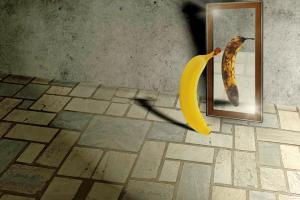We are repeatedly conned into doing things that arenu00e2u0080u0099t good for anyone, because we fall for marketing tricks on a daily basis

A shockingly large number of Indians continue to model themselves upon what they see on television, and it is never, ever good
 I have always despised the advertising industry. I'm not the only one, because millions the world over have long recognised that the tired argument it always makes, about giving us 'the right to choose', is as inane as the campaigns it routinely vomits out for our collective consumption. This isn't an industry that attracts the brightest and best people; it is often a refuge for con artists who revel in their trickery the way people from Delhi revel in their ability to circumvent the law.
I have always despised the advertising industry. I'm not the only one, because millions the world over have long recognised that the tired argument it always makes, about giving us 'the right to choose', is as inane as the campaigns it routinely vomits out for our collective consumption. This isn't an industry that attracts the brightest and best people; it is often a refuge for con artists who revel in their trickery the way people from Delhi revel in their ability to circumvent the law.
ADVERTISEMENT
The latest reason in my long list of reasons for hating the industry is a fairly recent study by the University of Waterloo that tied our fear of death to the reason why we make poor choices related to the environment. At first, it seemed like a bit of a stretch. The more I read though, the more compelling it seemed. Apparently, we choose to purchase things like bottled spring water, not because there is any scientific difference between that and tap water (this doesn't consider water from Bombay, obviously, because the University knows nothing about how the BMC functions), but because we are tricked into believing it is a healthy choice that can help us live longer.
The study examined social and psychological reasons for why particular choices related to water consumption were being made and came to the conclusion that millions of us around the world make environmentally unsustainable behaviour changes because these products are marketed to us as antidotes. It explained how marketing and advertising agencies routinely colluded to play upon our deepest fears, and portrayed products like spring water as solutions, irrespective of the damage these products caused to the planet. It showed how we ignore the ramifications of what purchasing those bottles mean, and how this creates a billion-dollar industry from nothing, all because we are tricked into believing we are doing what it right for our bodies.
It reminded me of those viral videos that appear on our social media timelines every other week, of how advertising agencies sell food with photo shoots that use fake products.
Poor choices related to water consumption aren't the only things that should be laid at the feet of this industry though. I often blame advertising for long-held beliefs about gender roles that routinely result in serious consequences within our homes as well as outside. Woke men and women will dismiss this, but a shockingly large number of Indians continue to model themselves upon what they see on television, and it is never, ever good.
Think of the decades spent propagating the notion of a woman's place in the kitchen; the notion that sanitary pads leave women feeling fresh as if menstruation is dirty; the relentless advertisements for fairness creams that pump billions into that industry at the cost of making millions of us feel insecure and inferior; the campaigns for deodorants that reduce women to the status of giggling commodities; not to mention the advertisements that are downright racist and misogynist — this is a list that could take up an entire newspaper.
There are the odd token ads that crop up every once in a while, of course, placing a man in the kitchen, giving a disabled woman a positive role, but none of us should be fooled into thinking of these as signs that the industry is evolving. It is always a bid at conning us in other ways, a covert attempt at manipulating us by pushing buttons that dim-witted marketing graduates are taught to believe exist. That they get away with it is less a testament to their intelligence than a comment on our inherent gullibility.
I sometimes daydream of a world without advertising, where human beings walk into stores and make decisions about what they want or don't want based on what they believe is right for them, not on what they are told is the smartest decision to make. I dream of young men and women graduating from college and choosing to do something genuinely worthwhile with their lives, instead of opting for a regressive, morally and intellectually bankrupt industry that hasn't had a good idea since the dawn of time. I laugh at the inane Golden Dogs, Silver Bears and Purple Unicorns they award themselves, cocooned in their bubbles into believing that anyone else cares.
Advertising isn't about our 'right to choose'. It is about exploiting our weaknesses and tricking us into buying things we don't need. It is a sad, despicable way to make a living.
When he isn't ranting about all things Mumbai, Lindsay Pereira can be almost sweet. He tweets @lindsaypereira Send your feedback to mailbag@mid-day.com
The views expressed in this column are the individual's and don't represent those of the paper
Catch up on all the latest Crime, National, International and Hatke news here. Also download the new mid-day Android and iOS apps to get latest updates
 Subscribe today by clicking the link and stay updated with the latest news!" Click here!
Subscribe today by clicking the link and stay updated with the latest news!" Click here!






